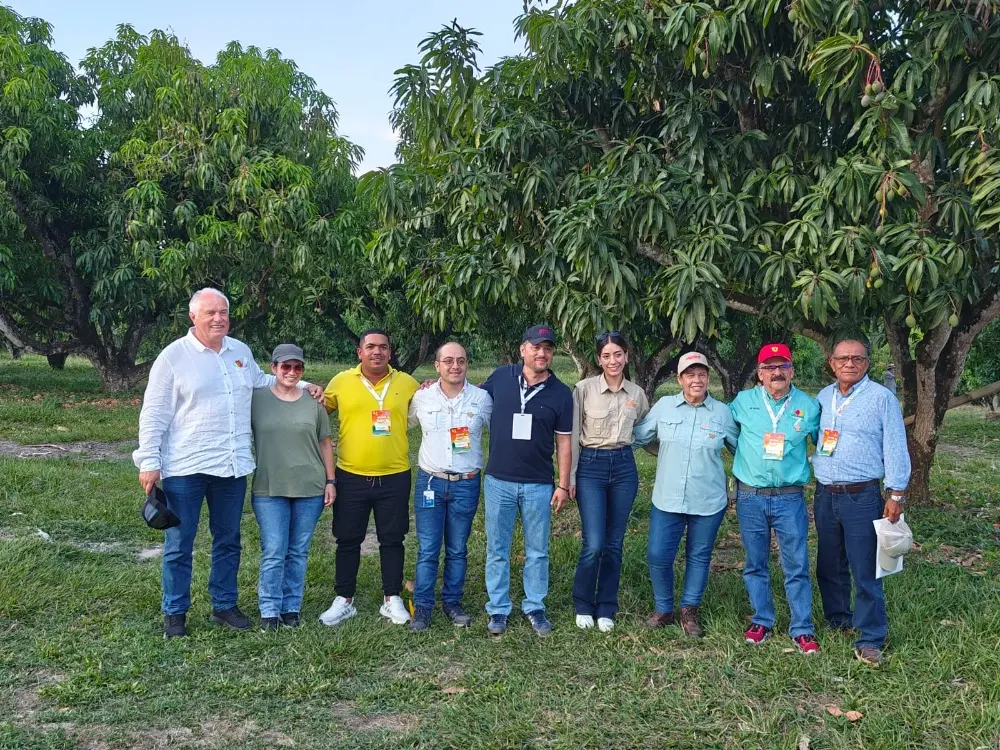- With its contribution, the entity reaffirmed its commitment to research and technology transfer to strengthen the productivity and sustainability of mango in Colombia.
Through the Caribia Research Center, AGROSAVIA participated in the 6th Colombian Mango Congress, held in El Espinal, Tolima. On behalf of the entity, the MSc. Researcher Juan Camilo Gómez Correa presented how integrating strategies such as pruning, nutrition, irrigation, weed, and pests and diseases management contributes to increasing the productivity of cropping systems and ensuring quality and safe fruit.
“The future of Colombian mango depends on the articulated adoption of these practices under a sustainability and innovation approach, which are key to meeting the demands of the global market and improving the country’s competitiveness,” highlighted Gómez Correa.
The Congress, organized by Fedemango and Asohofrucol, aimed to encourage producers to implement technologies that contribute to restoring the productivity of cropping systems, considering that the national average yield is 11 tons per hectare, even though it is possible to reach between 30 and 40 tons per hectare in local varieties such as Azúcar and in improved ones such as Tommy Atkins, Keitt, and Kent.
The event featured an academic agenda that brought together national and international experts. Dr. María Hilda Pérez Barraza, from Mexico, presented pruning techniques to synchronize productivity; engineer Manuel Meneses, from Asohofrucol, presented strategies for the renewal and rejuvenation of aging crops; Dr. René Bayona, from Peru, and Jorge Osuna, from Mexico, shared methodologies for irrigation management and how to establish the optimal harvest time; and Dr. Goran Obradovic, from Italy, showcased innovations in fruit processing such as dehydration, freezing, and lyophilization.
In addition, Dr. Rafael Gómez, from INIFAP in Mexico, addressed the management of diseases such as sooty mold, algal leaf spot, and anthracnose; Dr. Andrea Ramos, from ICA, presented the main pests affecting the crop; MSc. Lyda Minelly explained the role of mycorrhizae in the nutrition and resilience of production systems; Nathalia Tello, from the National Mango Board, shared consumption and trade projections in the United States and ongoing research projects; while Óscar Bolaños, from Procolombia, presented the commercial outlook of Colombian mango, highlighting current export destinations and opportunities for access to new markets.
AGROSAVIA’s participation reaffirmed the role of the entity as a strategic ally of producers in knowledge transfer, innovation, and the development of applied solutions to the challenges of the fruit sector. Meanwhile, this academic space was consolidated as a key platform for dialogue, coordination, and the joint construction of strategies that drive the sustainability and growth of mango cultivation in the country.
- More information here:
- Daniel Mulford Soto
- Communications, Identity and Corporate Relations Professional
- Research Center Caribia
- Communications, Identity and Corporate Relations Advisory Office
- dmulford@agrosavia.co
- AGROSAVIA





